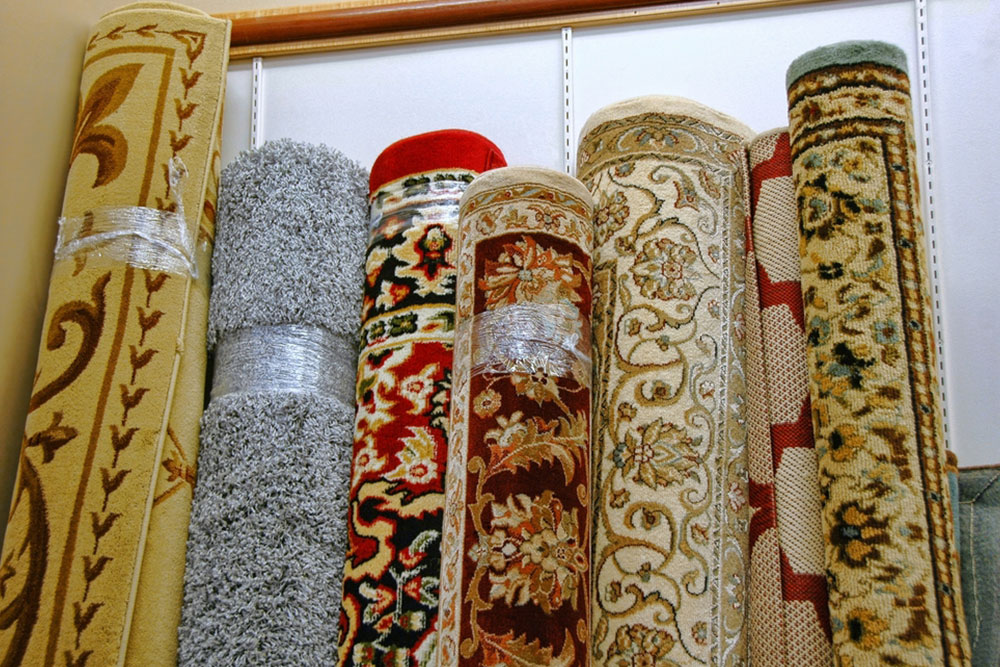Common materials used in area rugs
Rugs are an important part of home décor. They are used for ornamental purposes to brighten up a room or to warm up the floor in colder places. While carpets and rugs are used interchangeably at times, they are different since carpets span the entire floor while rugs cover specific floor areas and are called area rugs too.

Woolen rugs- Woolen rugs are one of the most durable kinds and a popular choice among homeowners. The versatility of wool allows an endless amount of options, plus allowing it to hold its appearance for a long time. Wool naturally repels liquid due to its dense property. They absorb moisture enabling for a quick cleanup, thereby avoiding permanent damage.
Cotton rugs- Similar to woolen rugs but comparatively less dense, cotton rugs dye easily leading to a plethora of color options. They are usually braided and flat weaved and are a softer alternative to jute and sisal rugs. Cotton rugs are suitable for living areas with maximum traffic as they are durable and machine-washable. Being cheaper than woolen rugs, they are a good choice for families with a budget limit.
Synthetic fiber rugs- These types of rugs are typically machine-made. Woven on a power loom, synthetic rugs can be customized to suit the desired size, colors, patterns, etc. There are three types of synthetic rugs- nylon rugs, olefin rugs, and polyester rugs. Synthetic rugs are durable and can withstand heavy traffic. They also have a nice sheen to their appearance.
Hair-on-hide rugs- These types of rugs are woven by skilled artisans. Hair-on-hide rugs offer a contemporary and an organic look. Its sophisticated color palette can fit various home aesthetics. Hair-on-hide manufacturing uses cowhide to create different patterns which are eventually stitched together and glued to a cotton-latex. It is recommended to rotate the rugs periodically for even wear.
The material is the most important factor when it comes to selecting the best rugs for your living space. Hence pay close attention to the pros and cons of each fabric before making your choice.


